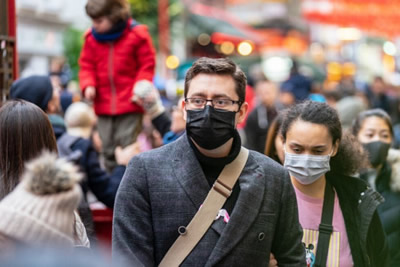Pamela Coke Hamilton and Teresa Moreira, UNCTAD
As the global coronavirus (COVID-19) pandemic continues to develop, it is raising some serious dilemmas for consumers, from scams, to negligent business practice and misinformation.
Consumer protection agencies are taking definitive action, and looking for new ways to share intelligence and best practice to address issues at scale.
In this guest blog, Pamela Coke Hamilton, Director Division on International Trade and Commodities at UNCTAD Teresa Moreira, Head Competition and Consumer Protection Branch (UNCTAD), share their views on how Consumer Protection agencies, and the consumers they seek to protect, can work together during the crisis.

Despite the human suffering and the economic crisis brought upon us by COVID 19, there are those who take the opportunity to profit from the chaos and misfortune of others.
This has opened yet another front in our battle against a global virus: protecting consumers. And it is here where Consumer Protection agencies around the world become central players in this battle.
“[T]here are pestilences and there are victims”, wrote Albert Camus in the Plague, “and it's up to us, so far as possible, not to join forces with the pestilences.” Today, there are those joining forces with the COVID-19 pandemic. This can take different forms: from misleading business practices to price increases that render goods scarce or unaffordable, affecting not only doctors and nurses in the front line of the battle, but also consumers, particularly the most vulnerable.
The problem is not exclusive to one country. Many consumers have reported over pricing of essential hygiene consumer products such as masks, hand sanitizers and basic household products. For instance, in Germany the price of masks increased by 3000%, from 0.45 to 13.52 Euro. In Kenya, a supermarket chain was ordered to refund consumers after inflating the prices of hand sanitizers. Consumer protection agencies are reacting and rightly so. France, Greece, India, Italy, Kenya and Nigeria have taken action by introducing price caps.
The exploitative practices go beyond price increases. There has also been a surge in fake products and false claims to trick and mislead consumers. Mexico closed a laboratory for marketing false COVID-19 tests. The Republic of Korea found 53 false advertisements where 45 businesses stated that using their purifiers and humidifiers would prevent the coronavirus. In these instances, the Republic of Korea took immediate corrective measures in 40 cases and sent requests for correction in others.
When the public health is stake, consumer protection is critical, and agencies must rise to meet this challenge
The Republic of Korea has facilitated consumers to lodge COVID-19 related complaints, through consumer counseling call centers. Colombia launched an app for consumers to report breaches to consumer protection related to COVID-19 in real time. The Dominican Republic, France, Mexico, Morocco and Spain, among others, have created dedicated online portals hosting up-to-date information for consumers. The United States hosts a list of tips for consumers to avoid COVID-19 scams. Consumer protection authorities of all EU member States (Consumer Protection Cooperation network), issued a common position on the most reported scams and unfair practices in the COVID-19 context. The objective is to ask and assist online platform operators to better identify illegal practices, remove them and prevent recurrences.
The United Nations Guidelines for consumer protection calls on countries to ensure access to essential goods and services, especially for vulnerable and disadvantaged consumers. Some, like France and Spain have reacted quickly. They suspended payment of public services bills, such as energy and water, for vulnerable consumers, including those who lost their jobs because of the epidemic.
The International Consumer Protection Enforcement Network (ICPEN) identifies five key areas of concern based on reports from 21 members: misleading advertising related to miracle products; the cancellation of public events, tourism services, and air transport tickets; financial scams related to false donations and phishing techniques; unjustifiable increase of product prices and the priority of virtual channels over face-to-face channels.
Consumer protection agencies are doing what they are tasked to do: protect consumers
And they could do even more by fostering cooperation between them. This could help to improve the conditions under which essential goods are offered to consumers, in terms of both price and quality. Such cooperation could include joint procurement of essential goods, exchange of information on different procurement possibilities and agreements on regional product specification.
And as consumers we can also do more
This can only work if we all cooperate. Consumer protection agencies are doing their part. Now, each of us needs to do ours. We need to raise awareness of the problems, contact our national consumer protection agencies, inform them of misleading advertisements, unjustified price increases, or suppliers of magic potions. It is only with the cooperation of everyone that we can avoid further harm during this crisis. It is only with the cooperation of everyone that we can ensure that we all push in the same direction, and that nobody joins forces with the COVID-19 pandemic.
Read the original article on Consumers International
Follow them: @Consumers_Int on Twitter | @consumersinternational on Facebook


